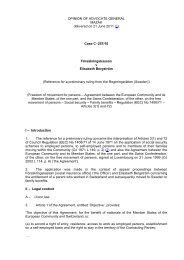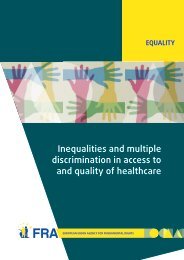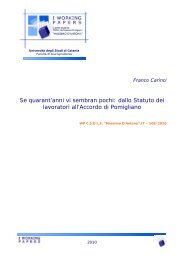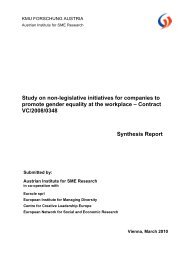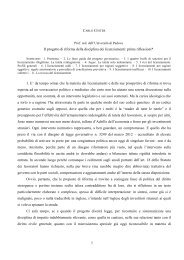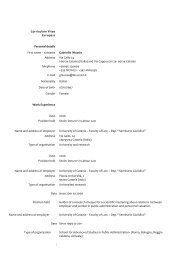Full text - European Trade Union Institute (ETUI)
Full text - European Trade Union Institute (ETUI)
Full text - European Trade Union Institute (ETUI)
Create successful ePaper yourself
Turn your PDF publications into a flip-book with our unique Google optimized e-Paper software.
Temporary agency work in the <strong>European</strong> <strong>Union</strong><br />
of personal performance (see sections below on bonuses linked to personal<br />
performance and performance appraisal systems). This might also include<br />
non-contractual payments which have been paid with such regularity that<br />
they are a matter of custom and practice, vouchers or stamps which have<br />
monetary value and are not ‘salary sacrifice schemes’, for example, luncheon<br />
vouchers and child care vouchers. In British law, ‘pay’ excludes occupational<br />
sick pay (the Agency Workers Regulations adopted in 2010 do not affect<br />
an agency worker’s entitlement to statutory sick pay), occupational pensions<br />
(agency workers will be covered by new automatic pension enrolment which<br />
will be phased in from October 2012) occupational maternity, paternity or<br />
adoption pay (the Regulations do not affect an agency worker’s statutory entitlements),<br />
redundancy pay (statutory and contractual), notice pay (statutory<br />
and contractual linked to loss of employment), payment for time off for trade<br />
union duties, guarantee payments as they apply to directly recruited staff if<br />
laid off, advances in pay or loans (for example, for season tickets), expenses<br />
such as accommodation and travel expenses, payments or rewards linked to<br />
financial participation schemes such as share ownership schemes, phantom<br />
share schemes, overtime or similar payments where the agency worker has<br />
not fulfilled the qualifying conditions required of someone directly recruited.<br />
For example, an agency worker would have to be doing work over and above<br />
standard hours to qualify for overtime, not just working a shift that permanent<br />
staff tends to work on an overtime basis. On top of this are the majority<br />
of benefits in kind given as an incentive or reward for long-service, for<br />
example, where Building Society staff may be given a reduced rate mortgage,<br />
as well as employer funded training allowances, any payments that require<br />
an eligibility period of employment/service, if not met by the agency worker<br />
(same treatment as if directly recruited) or if the agency worker is no longer<br />
on assignment when the bonus is paid (if the same applies to those directly<br />
recruited, that is, no longer working for the hirer), bonuses which are not directly<br />
linked to the contribution of the individual – for example, a flat rate<br />
bonus that is given to all direct recruits to encourage loyalty or long-term service,<br />
and also additional discretionary, non-contractual bonuses, as long as<br />
these payments are not made with such regularity that they have become custom<br />
and practice (see section above on bonuses and commission payments).<br />
In contrast, a few other Member States have chosen a more restrictive approach.<br />
Current Austrian legislation is amended in respect of the notion of<br />
pay (1) to allow for the principle of equal pay to be anchored in collective agreements<br />
at plant level, and not only in national and branch level collective agreements.<br />
To date, the social partners have not been able to reach agreement on<br />
this issue. (2) Furthermore, the notion of pay is interpreted restrictively and<br />
does not include pension schemes agreed at the enterprise level. In Ireland,<br />
pay is defined as ‘basic pay, and any pay in excess of basic pay in respect of<br />
shift work, piece work, overtime, unsocial hours worked, hours worked on a<br />
Sunday’. Occupational pension schemes, financial participation schemes, sick<br />
pay schemes, benefits in kind, bonus payments, maternity and adoptive leave<br />
pay, and redundancy payments or any arrangements or payments provided<br />
for by law are not included. It is important to stress that measures concerning<br />
pay adopted in May are retroactive.<br />
WP 2012.13 31





